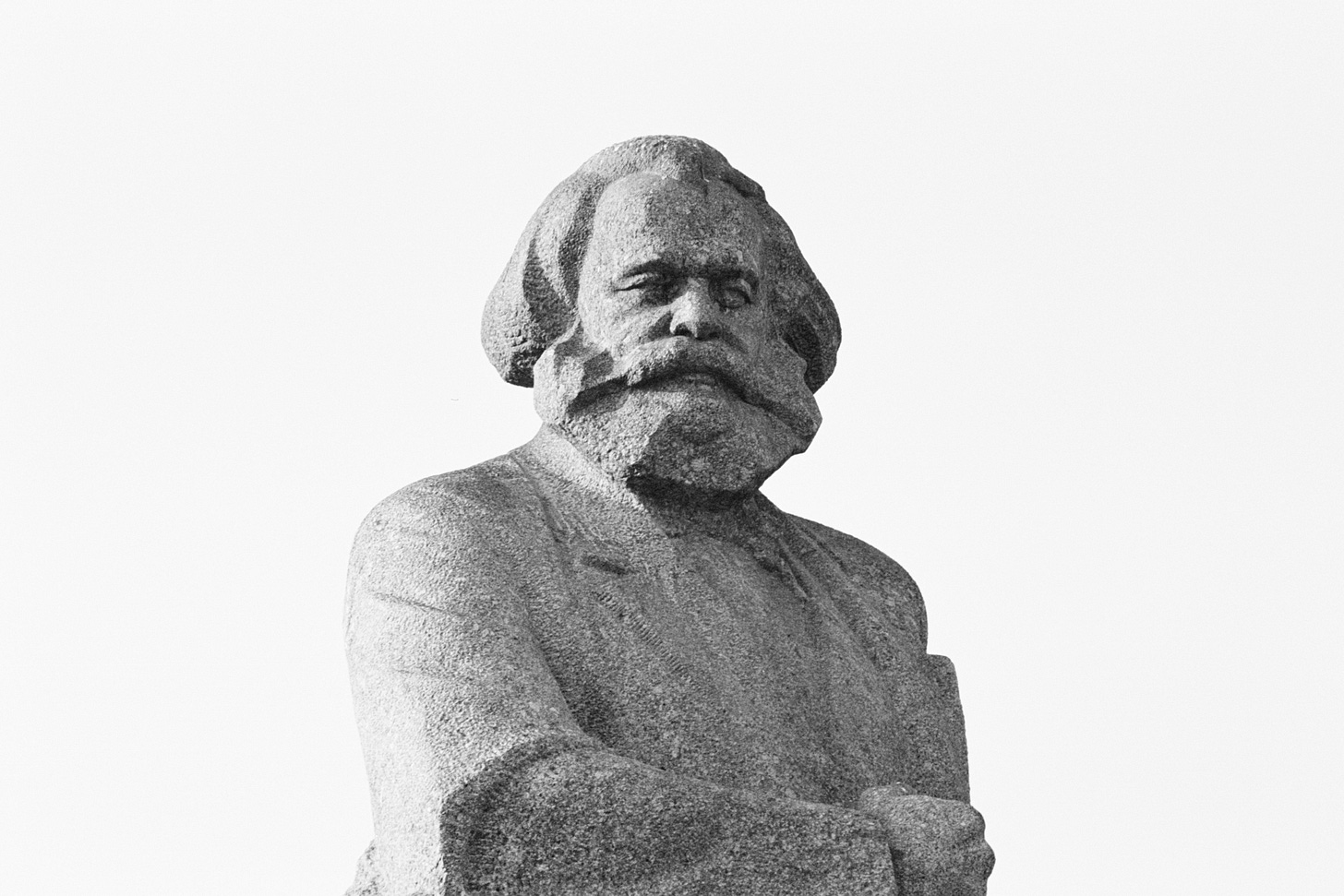Capitalism, AI and Marx
Potential effects of AI agents on class struggle and how to mitigate adverse consequences
In an era when artificial intelligence increasingly permeates our daily lives, we stand at a crossroads where technology might fundamentally reshape one of humanity's oldest social dynamics: class struggle. As autonomous AI agents emerge from research labs into the real world, they have the potential to either exacerbate or ameliorate the historic tensions between social classes.
Understanding Class Struggle
We must first understand the theoretical structure that shaped our understanding of class conflict before further understanding AI's potential impact on class dynamics. Capitalism, as we know, represents an economic system based on private ownership, which also covers the means of production and their operation for profit. In contrast, socialism believes collective ownership and democratic control of these same productive forces would result in a higher societal utility.
Karl Marx, whose analysis of class conflict remains influential today, argued that society's economic structure creates two primary classes: the bourgeoisie (capitalists who own the means of production) and the proletariat (workers who sell their labour). According to Marx, this arrangement between classes inevitably leads to conflict, as the interests of these classes fundamentally oppose each other. In modern terms, we can think of this as a zero-sum game where employers seek to maximize profit by minimizing wages while workers strive for better compensation and conditions.

The Current State of AI
Today's artificial intelligence landscape is dominated by large language models (LLMs) and narrow AI systems designed for specific tasks such as robotic process automation (RBA). While impressive, many sceptics argue these technologies are still far from autonomous agents. My personal opinion has always been that AI agents will likely overperform humans in almost all professional fields sooner than many expect.
Recently, we started to hear the footsteps of the long-waited trend of AI systems from chatbots to collaborative AI agents (e.g., OpenAI, Microsoft, Anthropic). Although these systems are still in their beta phases, their functionality and, more importantly, accuracy will advance quickly. Technology firms previously tried to automate business tasks through RBA, which brings technical challenges during their real-life applications (e.g., updates in javascript libraries leading to crashes). However, unlike their predecessors, AI agents do not need to follow a well-structured process for automation. We can think of their difference in layman's terms: for RBA, you need to define "How"; for AI agents, you just need to define "What", and agents will figure out the "How" part.
Some of the unique differentiators of AI agents will include:
Engage in human-like decision-making processes
Ability to learn from experience and adapt
Operate with increasing degrees of autonomy (thanks to the accumulation of system knowledge)
Interact with users in natural ways to ensure a better experience
How AI Agents May Affect Class Dynamics
Since the start of modern economics, there has been a continuous negotiation between classes. I am not here to argue who is right or which arguments are logical but rather to highlight that existing relationships between classes can change dramatically. For a moment, imagine a near-future world where AI agents can conduct most of the office work (i.e., white-collar) for a fraction of the cost compared to humans. Unlike previous technological revolutions, AI agents don't just replace manual labour – this time, they have potentially automated cognitive work traditionally performed by the middle and upper classes. This creates a new dynamic where even knowledge workers face potential displacement. I argue that any business that figures out how to implement this technology in its existing business processes will do it at the cost of its employees or contractors. This is basic economics, considering the main goal of businesses is profit maximization, any opportunity to remove costs needs to be utilized.
So, we may end up with two social classes on the negotiation table where one (the proletariat) has no bargaining chips (i.e., labour to offer). Such dynamics can disturb the equilibrium in the labour markets disproportionally in favour of entities that control the new means of production (chips, electricity, IP, etc.)
Some futurists argue that the consequences of such displacement will be limited. The complete automation of tasks will lead to the prices of products and services approaching zero (e.g., the effect of perfect competition on prices). In an economy in which many of us will earn significantly less or maybe become completely dependent on welfare payments, it will also take significantly less to cover the necessities of our daily lives.
Potential solutions (not prevention) for this scenario include taxing AI agents (and robots) at similar rates to existing national insurance payments. Another solution can be increased ownership of means of production by state, focusing on the public good.
Perhaps most intriguingly, from a social class perspective, we may want to consider whether autonomous AI agents might eventually constitute a new class in themselves, with their interests peculiar to us. This possibility challenges traditional binary class analysis, even potentially disintermediating the bourgeoisie from the production function by accumulating their own capital.
Suggested reading: Four Futures: Life After Capitalism (Jacobin) by Peter Frase
Conclusion
The introduction of autonomous AI agents into the class struggle equation doesn't have to lead to increased inequality if handled with care. Such attention and care can be focused on carefully considering how AI technology is developed and deployed, creating new frameworks for ensuring equitable access to AI capabilities, reassessing our entire concept of class structure, and developing beyond state-level policies that aim to prevent the weaponization of AI against any social class.
The following 5-10 years will determine whether this new form of intelligence becomes a tool for further class division or a catalyst for a more equitable society.




